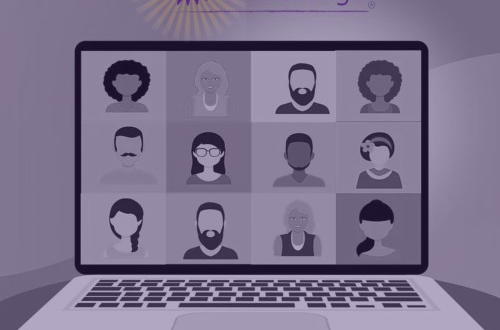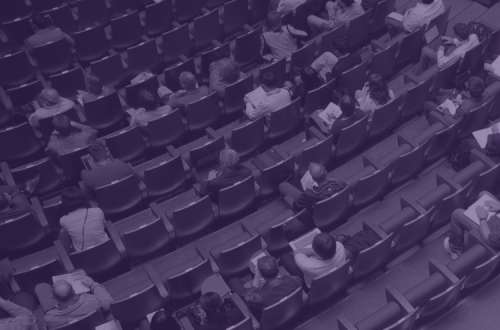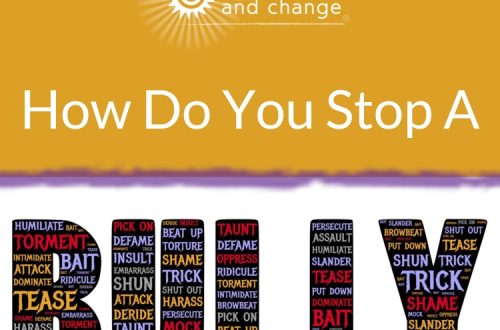Design & Facilitation 101: Exploring White Privilege
Did you ever notice how those in privileged groups tend to focus on their ‘good intent’ rather than on the negative impact of their behavior when interacting with members of marginalized groups? Very often, in our privileged identities we tend to focus on how much progress we’ve made – rather than how much more still needs to be done!
I’m not saying it’s a bad thing to acknowledge the good work that has already been accomplished – not at all. However, if we focus solely on past achievements, we overlook the daily indignities those in marginalized groups continue to face.
Effective design and facilitation involves learning how to engage others to explore and identify their own privileged identities and to open a dialogue on both privileged and marginalized identities.
In this article, let’s explore white privilege and its impacts in the workplace. Keep reading because I’m also sharing some practical questions and tools to recognize and interrupt white privilege in organizational practices.
White Privilege: The Assumed, Built-in “Security System” For Whites
White Privilege: the ways we as whites get unearned access, resources and privileges just because of our racialized identity; we receive all these privileges whether we want them or not, whether we asked for them or not; and all of this unearned advantage comes at the expense and loss for people of color and people who are Indigenous.
Reading what I just wrote or hearing the words white privilege in conversations can invoke immediate, knee jerk defensiveness in many whites. I know I resisted exploring white privilege for years; I insisted I “earned” everything I had through my hard work and intelligence!
It felt as though I deserved everything I had, and had worked hard for it all. I believed this was the right and normal way society should operate. I assumed white people just worked harder over the years, so that was why we had more access to education, good jobs, promotions, policies and laws that served and protected us…
How can we challenge whites to recognize white privilege and its effects
How can we challenge whites to recognize the way white privilege is so embedded into organizational cultures and practices and deepen their passion and commitment to partner to unravel the white privilege and institutional racism that permeates societal institutions, including the legal, policing, and justice system, housing, health care, education, employment, the military, politics, the media, entertainment, and so many other areas?
In my engaging course, “Design and Facilitate Powerful Workshops on Equity, Inclusion and Social Justice,” I share tools and smart approaches that can show you how to help others more effectively identify and explore their privilege and engage their predictable resistance in the process.
“White privilege is like an invisible weightless knapsack of special provisions, maps, passports, codebooks, visas, clothes, tools, and blank checks.”
-Dr. Peggy McIntosh
Recognizing White Privilege in Your Organization
Simply being born white translates into receiving scores of types of advantages and unearned privilege.
Parents, teachers, friends and society reinforce that privilege daily – so much so that we whites take it for granted and enjoy the benefits without thought to where they come from and who they hurt.
Recently, I’ve become more aware of the types of white privilege I am given every day:
- Whites are assumed to be the leaders, in charge
- We are assumed to be smarter, more competent than people of color
- We are given opportunities and stretch assignments we may not be ready for as well as the necessary coaching to be successful
- Whites are given the benefit of the doubt if we make a mistake and our misstep is not taken as evidence of the inherent deficit and incompetence of our entire racial group
- Laws and policies were created by whites to maintain the privilege and position of whites while they disproportionately negatively impact and create barriers for communities of color
- Police, law enforcement and judicial systems are inherently positively biased towards whites
- Educational systems were founded on white cultural values and practices – and current practices continue to center whiteness in instruction practices and curriculum
I could keep going and I hope you gather with others to identify a robust list of how white privilege continues to operate in our community institutions and organizations.
What I know is – I am where I am in my life because of the significant advantages I have had as a white person. Yes, I worked hard AND the system was set-up for my success for centuries, especially given my class and education privileged identities as well as so many others.
It can be hard to find the willingness and courage to stay engaged in the conversation and learn more about our privilege.
A place to start may be to recognize many of the ways privilege operates in our organizations.
See if you have observed any of the following:
- In a Search Committee, a white member critiques the only candidate of color who was selected for the final round of interviews by pointing out a couple of grammatical errors in their cover letter, yet when someone says one of the white candidates had misspelled words in their PowerPoint presentation, a group member counters with, “But he is such a good fit for the team.”
- A white supervisor publicly confronts an employee of color for being late to a meeting, but says nothing the next meeting when two white team members come in late.
- A couple white team members get repeated special assignments and stretch opportunities that give them far greater access to top leaders. No person of color has been considered or asked to take on similar responsibilities.
- Over the years, a person of color has been asked to train and develop multiple new white hires…many of whom have been promoted to higher level positions while she is not.
- Comments from people of color are often overlooked or critiqued until a white person says something very similar – and then the group positively engages the idea.
- Managers and leaders continue to enforce their definition of “professional” without examining how it is rooted in white cultural values and practices, including: time is money; “professional” dress and appearance; urgency; quick fixes; emotions are unprofessional; logic and analytical thinking is professional; task is more valued than process and engagement; hierarchy rules, always work up through the line of supervision; there is a right way to do things; value comfort and the status quo over innovation and inclusion…
- People of color are held to these “professional” standards far more often while whites get a pass for appearance and behaviors that violate these.
- When whites are clear, direct, and ask challenging questions, we are viewed as having leadership potential. When people of color demonstrate the same leadership behaviors they most often get labeled as pushy, angry, unprofessional, not a team player…
There will always be exceptions to these pervasive group and organizational racist dynamics.
If you are thinking, “Yeah, but…” or “That happens to me too!” I invite you to talk to other whites who work for equity and inclusion and explore how your experiences may have more to do with your marginalized identities, such as years of experience, disability status, level and position, class of origin, educational background, sex assigned at birth/gender, sexual orientation, religious identity, gender identity, etc.
Our efforts to create equitable inclusive workplaces must involve interrupting microaggressions and policies/practices that create barriers and negatively impact people of color. This is necessary, but not sufficient. EDI change efforts must also interrupt and shift on the inherent white privilege that is baked into so many everyday, common organizational practices.
“When you are accustomed to privilege, equality feels like oppression.”
-Oscar Auliq-Ice
In addition to the widely known work of Dr. Peggy McIntosh and the Invisible Knapsack, I recommend you read other resources including the work of Kenneth Jones and Tema Okun, White Supremacy Culture.
As you work on teams and facilitate trainings…
The following questions might be useful to analyze current practices, identity white privilege, and imagine more equitable, productive ways of being:
- Whose ideas are considered?
- Who is assumed to be competent?
- Whose credentials are questioned?
- Who is assumed to belong?
- Who gets the benefit of the doubt?
- Whose culture is infused in the organization as the ONLY way?
- What behaviors are valued as competent or professional?
- By group membership, who gets rewarded who demonstrating these?
- By group membership, who gets ignored, overlooked or even criticized for the same behaviors?
- How are these common White Supremacy Culture elements embedded in our policies and practices?
*Source: Kenneth Jones and Tema Okun, White Supremacy Culture
- Perfectionism
- A sense of urgency
- Defensiveness
- Quantity over quality
- Worship of the written word
- Paternalism
- Either/or thinking
- Power hoarding
- Fear of open conflict
- Individualism
- Progress = Bigger, More
- Objectivity
- Right to comfort
- How is each of these unproductive much of the time? Are there 1-2 ways some aspect of this MIGHT be useful at times?
- How might this policy or practice advantage whites and create barriers for people of color?
My in-depth course, “Design and Facilitate Powerful Workshops on Equity, Inclusion and Social Justice,” will strengthen your capacity to design and facilitate meaningful, productive workshops on equity, inclusion, and social justice. It will show you how to motivate and skill-up ALL employees and leaders to consistently do their part to achieve strategic organizational goals and recognize and shift unproductive white culture and white privilege in daily practices.
This is a lively, virtual hybrid course to learn and practice proven approaches that move people from denial and complacency to inspired action. Be a part of creating a more inclusive, equitable and socially just organization – and motivate others to do the same!




